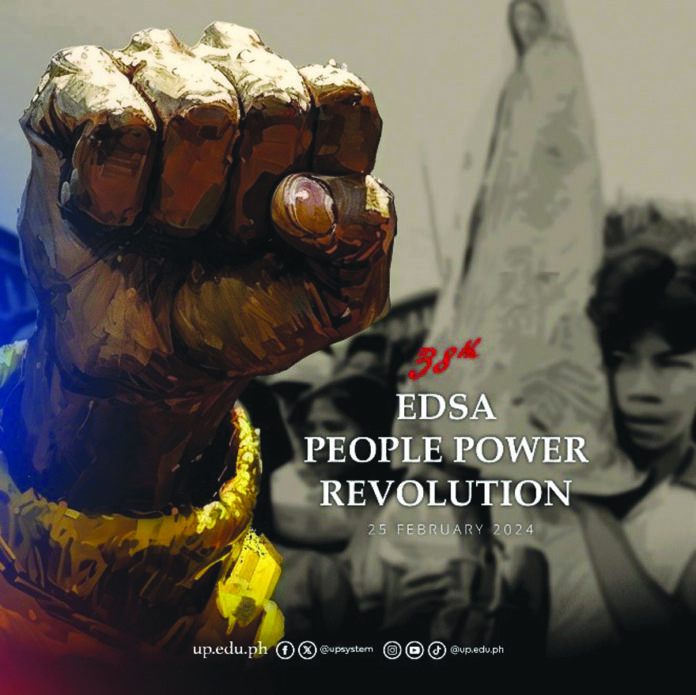Burnaby, BC, 24 February 2025 — The Philippines, much like other nations with turbulent political histories, has a past that remains deeply etched in its collective memory. The Martial Law regime, which then-President Ferdinand Marcos declared on September 21, 1972, marked a pivotal period in the country’s history. Officially, the declaration was justified as a necessary measure to maintain peace and order in the country during political instability and growing insurgency. However, the reality of Martial Law was far more sinister. Marcos used it to consolidate power, suppress dissent, and curtail freedoms. Thousands of Filipinos were subjected to human rights violations, including arbitrary arrests, torture, and extrajudicial killings. The economic and political ramifications of the regime still echo today.
In recent years, however, a new and concerning development has surfaced — a revisionist effort to alter the public’s perception of Martial Law, spearheaded by political figures such as Ferdinand “Bongbong” Marcos Jr., son of the late dictator. Through various means, including political discourse, media, and public relations campaigns, there has been an attempt to portray the Marcos years more positively, minimizing the brutal realities of the regime. Despite these efforts, one thing is clear: this attempt to revise history will never succeed, particularly with the Millennial generation.
The Martial Law Regime: A Brief Overview
The Martial Law period in the Philippines lasted from 1972 until 1981, although the Marcos family maintained de facto control over the country until their ouster in 1986. Marcos, citing threats from communist insurgents and separatist movements, declared Martial Law, effectively allowing him to rule by decree, dissolve the legislature, and control the media. The regime’s primary justification was national security. However, it was also marked by rampant corruption, abuse of power, and the enrichment of the Marcos family and their cronies at the expense of the Filipino people.
During Martial Law, dissent was not tolerated, and opposition figures were subjected to imprisonment, torture, and even murder. One of the most notable victims was Benigno Aquino Jr., whose assassination in 1983 is often cited as the catalyst for the People Power Revolution. This peaceful uprising eventually led to the Marcos family’s ouster in 1986. The regime also left a legacy of corruption, with estimates suggesting that the Marcos family stole billions of dollars from the Philippine government.
The Rise of Historical Revisionism
Despite the undeniable facts about the Marcos regime, there has been a rise in revisionist narratives, especially in recent political campaigns. Ferdinand Marcos Jr., who has continuously sought to rehabilitate the family’s image, has used political tools such as social media and public speaking engagements to downplay the horrors of Martial Law. In his speeches and statements, he often refers to the era as a time of “progress” and “stability” in the Philippines. He paints a rosy picture of the past that glosses over the abuses committed during his father’s rule.
This revisionist narrative is not limited to the Marcos family but is supported by a broader network of allies who seek to revise the history of the Martial Law period. This is a common tactic in authoritarian regimes, where those in power try to rewrite history to legitimize their rule and discredit opposition. However, this historical revisionism is unlikely to resonate with Millennials in the Philippines and worldwide.
Why Historical Revisionism Will Not Work on Millennials
Born roughly between 1981 and 1996, millennials represent a highly educated and globally connected group. They are uniquely positioned in the information age, where access to knowledge is abundant and immediate. The historical revisionism pushed by the Marcos camp faces significant resistance for several reasons, mainly due to how millennials engage with history and the world around them.
1. Access to Information
Millennials have access to unprecedented information in today’s digital age. The internet, social media platforms, and digital archives provide a wealth of knowledge about historical events, including the Martial Law era. Unlike previous generations, millennials are not reliant on traditional forms of media, which have historically been subject to censorship or manipulation. The availability of independent sources, such as documentaries, books by historians, and personal accounts of Martial Law survivors, means that the truth about the regime is easily accessible.

Social media, in particular, has played a pivotal role in shaping millennial engagement with history. Platforms like Facebook, Twitter, and YouTube allow individuals to share their stories, offer counter-narratives, and disseminate information that challenges official versions of history. Movements such as #NeverAgain, which aims to educate the public about the atrocities committed during Martial Law, are proof of how millennials can combat revisionism and ensure that the lessons of the past are not forgotten.
2. Critical Thinking and Skepticism
Millennials have been exposed to diverse perspectives and have developed strong critical thinking skills. Growing up in an era where information is abundant and often contradictory, this generation is adept at questioning narratives and seeking the truth. Historical revisionism, which relies on oversimplified or one-sided accounts, does not stand up to the scrutiny of a generation that values gradation and facts.
Moreover, millennials generally distrust institutions, especially those involved in historical injustices. Given the Marcos family’s association with corruption, oppression, and human rights abuses, many millennials are skeptical of any attempts to whitewash the family’s legacy. The emotional scars left by Martial Law are still felt by many, and the stories of survivors continue to resonate with the younger generation, making it nearly impossible to persuade them to accept a revisionist version of history.
3. Global Awareness and Solidarity
Millennials are a globally-minded generation. They have high awareness levels of human rights issues, political struggles, and social movements in other countries, and they see parallels between their history and the histories of other nations. This global awareness fosters solidarity with those who have experienced similar struggles for justice and human rights. The attempt to revise the history of Martial Law is not just a domestic issue in the Philippines; it is part of a more significant global movement to ensure accountability for past atrocities.
Authoritarian regimes have attempted to revise their histories in countries worldwide, from Latin America to Eastern Europe. Millennials, with their strong sense of justice and human rights, are unlikely to be swayed by such revisionism, whether it occurs in the Philippines or elsewhere.
4. They Will Not Succeed
The attempt by Ferdinand Marcos Jr. and his allies to rewrite the history of the Martial Law era may be a powerful political tool in some circles. However, it will not succeed with the Millennial generation. Millennials have access to the truth, a strong sense of critical thinking, and a global perspective that allows them to see through the lies and distortions propagated by historical revisionism. As the generation that grew up in the digital age, they are committed to preserving the lessons of the past and ensuring that the atrocities of the Marcos regime are never forgotten. In the end, the truth cannot be buried by political rhetoric — it is a living, breathing part of the collective memory of the Filipino people, and the Millennial generation will continue to fight for it.
References
- Aquino, B. (1986). The Aquino martyrdom: The Aquino assassination. Philippine Daily Inquirer.
- Marcos, F. (2019). The Marcos legacy: A new hope. Manila Bulletin.
- Monlinong, Jason Paul. (2025, February 25). [Facebook story]. Facebook. https://www.facebook.com/stories/1543802062379001/UzpfSVNDOjE2MTI1NjU4MTYwNDUwMzQ=?view_single=false
- Reyes, M. (2021). Resurrecting the past: The Marcos family and historical revisionism in the Philippines. Philippine Studies Journal, 68(4), 103–121.
- University of the Philippines. (2025, February 25). [Photo of the 1986 People Power Revolution commemoration] [Facebook photo]. Facebook. https://www.facebook.com/photo/?fbid=824178916418031&set=a.368054625363798
By Bella Balisi-Bevilacqua
(MBB)



